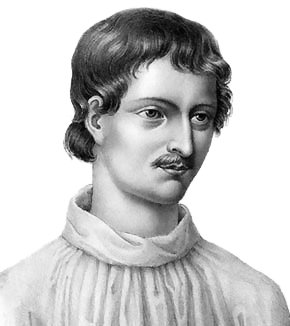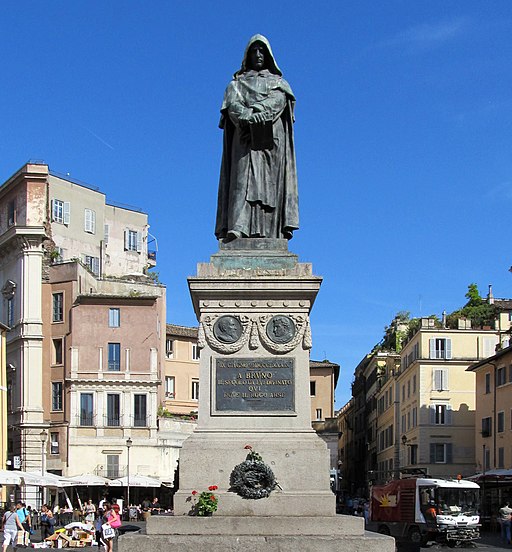 |
| Giordano Bruno (1548-1600). Public Domain |
A martyr for science, Bruno has never been accorded the kind of posthumous 'pardon' that has been extended to others, who were similarly persecuted by the Inquisition, such as Galileo Galilei. This is on the grounds, apparently, that Bruno's sentence did not arise out of any scientific conclusions that he reached but rather, a retribution for certain stances that he held that were deemed to be heretical.
In 1942, Cardinal Giovanni Mercati, archivist of the Vatican Secret Archives and Librarian of the Vatican Library from 1936 until his death in 1957, upon discovering a number of lost documents relating to Bruno's trial, concluded that the Church was perfectly justified in condemning him!
On 20 January 1600, Pope Clement VIII declared Bruno a heretic and the Inquisition issued a sentence of death. According to the correspondence of Gaspar Schopp of Breslau, he is said to have made a threatening gesture towards his judges and to have replied: Maiori forsan cum timore sententiam in me fertis quam ego accipiam ("Perhaps you pronounce this sentence against me with greater fear than I receive it") – Wikipedia
 |
| daryl_mitchell from Saskatoon, Saskatchewan, Canada / CC BY-SA |
Toland is considered as among the first to have come to regard Bruno as an atheist. An account by Toland of Bruno's De l'infinito, universo e mondi ('On the Infinite Universe and Worlds', first published in London in 1584) appears in A Collection of Several Pieces of Mr. John Toland ..., published by Pierre des Maizeaux shortly after Toland's death in 1722. Here, Bruno developed the Copernican system and was the first to postulate that the stars were objects like our sun, which may themselves have exoplanets.
Today, monuments to Bruno stand in many places, including the site of his execution in Campo de' Fiori in Rome. Asteroids and a crater on the far side of the moon have been named in honour of his contributions to astronomy and cosmology.
